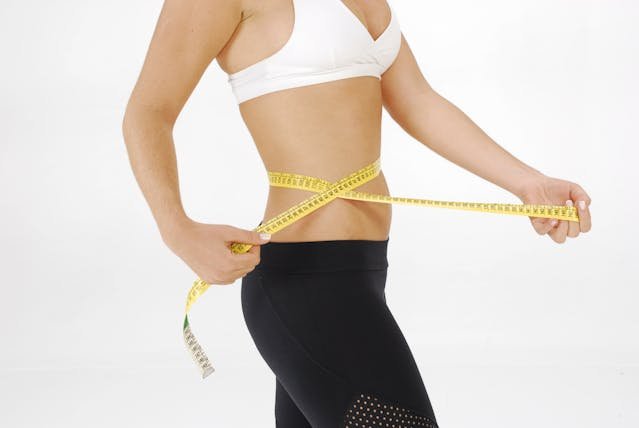If you’ve tried losing weight before, you know the frustration: initial success followed by plateaus, muscle loss, and eventually gaining it all back. Sound familiar? The problem isn’t your willpower—it’s that most approaches focus on quick fixes rather than building a complete weight loss strategy guide that actually works long-term.
After watching countless people cycle through fad diets and extreme measures, I’ve learned that sustainable weight loss isn’t about finding the perfect diet or workout. It’s about understanding how to work with your body’s natural systems while preserving what matters most: your health, your muscle mass, and your sanity.
The Foundation of Successful Weight Loss Strategy
A complete weight loss strategy addresses four critical components that most approaches ignore: sustainable rate of loss, muscle preservation, psychological sustainability, and financial accessibility. According to NCBI research on obesity management, the most successful long-term weight loss strategies integrate all these elements rather than focusing on just one aspect.
The four pillars of sustainable weight loss:
- Optimal weekly weight loss targets
- Muscle preservation protocols
- Psychological and lifestyle sustainability
- Affordable, accessible methods
When any of these elements is missing, the strategy becomes unsustainable, leading to the familiar cycle of loss and regain.
How Bodybuilders Burn Fat Without Losing Muscle
Here’s something most people don’t realize: how bodybuilders burn fat without losing muscle isn’t about extreme measures—it’s about precision and patience. Bodybuilders have mastered the art of losing fat while preserving (and sometimes even building) muscle because their livelihood depends on it.
Key strategies from competitive bodybuilders:
- Moderate calorie deficits (300-500 calories below maintenance)
- High protein intake (0.8-1.2g per pound of body weight)
- Consistent strength training throughout weight loss
- Strategic timing of carbohydrates around workouts
- Adequate sleep and stress management
The beauty of these methods is they’re not extreme—they’re sustainable approaches anyone can implement.
How Much Weight Should You Lose Per Week?
How much to lose per week without sacrificing muscle mass is one of the most important questions in weight management, yet most people get it wrong. The “2 pounds per week” rule that’s thrown around everywhere? It’s often too aggressive and leads to muscle loss.
Research-backed weekly weight loss targets:
| Body Fat Level | Recommended Weekly Loss | Why This Rate |
|---|---|---|
| Over 25% (men), 32% (women) | 1.5-2 lbs per week | Higher fat stores support faster loss |
| 15-25% (men), 24-32% (women) | 1-1.5 lbs per week | Balanced approach preserving muscle |
| Under 15% (men), 24% (women) | 0.5-1 lb per week | Slower rate protects lean mass |
The key insight? Your ideal rate of loss changes as you lose weight. What works at the beginning of your journey may be too aggressive later on.
Top 5 Tips for Healthy and Sustainable Weight Loss
When it comes to tips for healthy and sustainable weight loss, the advice that works isn’t always what’s trending on social media. Based on both research and real-world results, these strategies consistently produce lasting results:
- Focus on protein first at every meal
- Prioritize sleep quality over exercise quantity initially
- Track trends, not daily fluctuations in weight
- Build habits gradually rather than changing everything at once
- Plan for plateaus and temporary setbacks
These principles might seem simple, but their implementation requires strategy and support. According to UC Davis guidelines for successful weight loss, sustainable approaches emphasize habit formation over restriction.

Is Weight Loss Without Insurance Possible?
Weight loss without insurance might seem challenging in today’s healthcare landscape, but it’s absolutely possible—and often more flexible than insurance-covered options.
Affordable weight loss strategies:
- Community health centers offering sliding-scale fees
- Telehealth platforms with transparent pricing
- Generic medications and compounded alternatives
- Self-pay programs that cost less than insurance co-pays
- Natural and lifestyle-based approaches
The surprising truth: Many people discover that paying out-of-pocket for weight loss services actually provides better value and more personalized care than navigating insurance restrictions.
The key is knowing where to look and how to evaluate options safely.
Building Your Personal Weight Loss Strategy
A complete weight loss strategy guide isn’t a one-size-fits-all prescription—it’s a framework you customize based on your life circumstances, preferences, and goals.
Your strategy development process:
- Assess your starting point honestly (health, lifestyle, resources)
- Set realistic timelines based on sustainable rates of loss
- Choose methods that align with your preferences and constraints
- Build support systems for accountability and guidance
- Plan for obstacles including plateaus, social situations, and life changes
The most successful people don’t follow perfect plans—they follow adaptable strategies that evolve with their changing circumstances.
Making It Sustainable: The Long Game
The difference between temporary weight loss and permanent transformation lies in sustainability. Your complete weight loss strategy should feel like a natural evolution of your lifestyle, not a temporary punishment you’re enduring.
Sustainability markers:
- You can maintain the approach during stressful periods
- It doesn’t isolate you from social activities
- You’re building skills, not just following rules
- Progress continues even when motivation fluctuates
Remember: Sustainable weight loss is a skill you develop, not a destination you reach. Be patient with the process and prioritize long-term health over short-term results.







